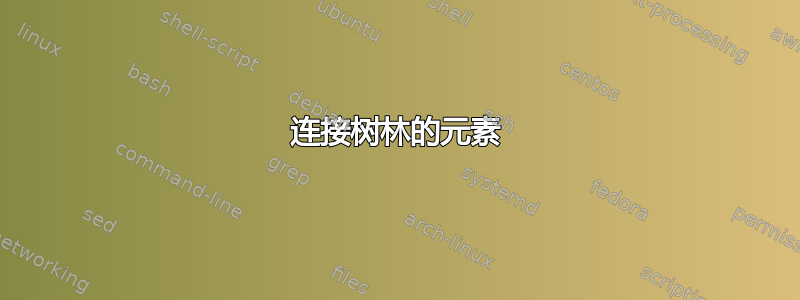
我正在研究分类法并使用 \forest 来构建它。我想绘制附图中以红色突出显示的部分。
\documentclass[conference]{IEEEtran}
\usepackage{etex}
\usepackage{graphicx}
\usepackage{epstopdf}
\usepackage{tikz,pgfplots}
\usepackage{tikz-qtree}
\usepackage{forest}
\usepackage{lettrine}
\usepackage{lscape}
\usepackage{pgf-pie}
\usetikzlibrary{positioning,shapes,arrows,shadows,patterns}
\usepackage{dashbox}
\usepackage{mathptmx}
\def\dsp{\def\baselinestretch{1.5}\large\normalsize}
\dsp
\newtheorem{theorem}{Jibberish}
\hyphenation{mar-gin-al-ia}
\begin{document}
\begin{figure}
\centering
{\footnotesize
\begin{forest}
for tree={
grow=0,
parent anchor=east,
child anchor=west,
anchor = west,
if n children=0{tier=word}{},
align=center,
edge path={
\noexpand\path[\forestoption{edge}](!u.parent anchor) -- +(5pt,0) |- (.child anchor)\forestoption{edge label};
}
}
[xxx
[yyy
[zzz
[kkk]
[lll
[mmm]
[mmm]
]
]
]
[yyy
[zzz
[kkk
[aaa]
[bbb]
]
[lll
[aaa]
[bbb]
[ccc]
]
]
[zzz
[kkk]
[lll]
]
[zzz
[kkk]
[lll]
[mmm]
]
]
]
\end{forest}
}
\end{figure}
\end{document}
答案1
您可以“作弊”并直接“手工”绘制它。
\documentclass[conference]{IEEEtran}
\usepackage{etex}
\usepackage{graphicx}
\usepackage{epstopdf}
\usepackage{tikz,pgfplots}
\usepackage{tikz-qtree}
\usepackage{forest}
\usepackage{lettrine}
\usepackage{lscape}
\usepackage{pgf-pie}
\usetikzlibrary{positioning,shapes,arrows,shadows,patterns}
\usepackage{dashbox}
\usepackage{mathptmx}
\def\dsp{\def\baselinestretch{1.5}\large\normalsize}
\dsp
\newtheorem{theorem}{Jibberish}
\hyphenation{mar-gin-al-ia}
\begin{document}
\begin{figure}
\centering
{\footnotesize
\begin{forest}
for tree={
grow=0,
parent anchor=east,
child anchor=west,
anchor = west,
if n children=0{tier=word}{},
align=center,
edge path={
\noexpand\path[\forestoption{edge}](!u.parent anchor) -- +(5pt,0) |- (.child anchor)\forestoption{edge label};
}
}
[xxx
[yyy
[zzz
[kkk]
[lll
[mmm]
[mmm]
]
]
]
[yyy
[zzz
[kkk
[aaa] {\draw () -- ++(1,0) coordinate(x1) |- (!s);}
[bbb]
]
[lll
[aaa] {\draw () -- ++(1,0) coordinate(x2) |- (!s);}
[bbb]
[ccc] {\draw () -- ++(1,0) coordinate(x3) |- (!s);
\draw (x1) -- (x3) coordinate[pos=0.125] (y1)
coordinate[pos=0.375] (y2)
coordinate[pos=0.625] (y3)
coordinate[pos=0.875] (y4);
\foreach \X [count=\Y] in {sss,rrr,qqq,ppp}
{\draw (y\Y) -- ++(1,0) node[right] {\X};}}
]
]
[zzz
[kkk]
[lll]
]
[zzz
[kkk]
[lll]
[mmm]
]
]
]
\end{forest}
}
\end{figure}
\end{document}




